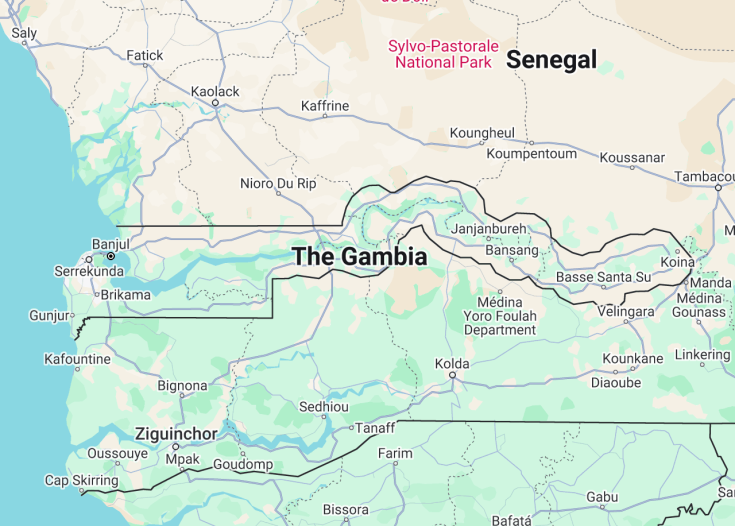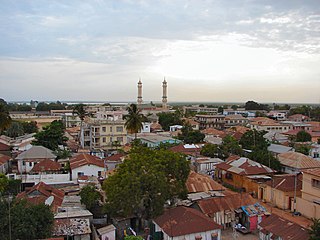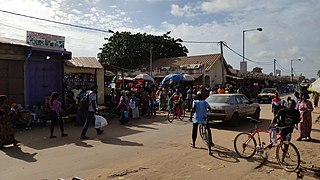The small West African nation of Gambia, known for its stunning natural beauty and vibrant culture, offers a unique experience to its visitors. With a rich history and diverse wildlife, this destination is a must-visit for nature enthusiasts and history buffs alike. From exploring the beautiful beaches along the Atlantic coast to immersing oneself in the local music and dance traditions, Gambia has something for everyone.
Don’t forget to explore the vibrant markets and try the delicious local cuisine.**
Make sure to visit the Abuko Nature Reserve to see a variety of endangered species up close and personal.
Gambia: Africa’s smiling coast
| Capital | Banjul |
| Time in Gambia | GMT |
| Language spoken | English |
| Population | 2.42 million (source: World Bank, 2021) |
| Religion | Islam (90%) Christianity (8%) Traditional and other religions (2%) |
| Currency | Gambian dalasi (D, GMD) |
| Airports | Banjul International Airport |
The Gambia, often simply referred to as Gambia, presents a unique blend of vibrant traditions, rich history, and stunning natural beauty. As the smallest country on mainland Africa, Gambia stretches along the Gambia River, with its borders carved by the meandering waterway which plays a crucial role in its cultural and economic story. The river has not only been a lifeline for its people but has also witnessed the tragic tales of the transatlantic slave trade, the remnants of which can be seen on James Island and other historic sites.
With an incredibly welcoming populace, Gambia exudes warmth that goes beyond its tropical climate. Its coastline, known for golden sands and tranquil blue waters, invites relaxation while its hinterland offers lush landscapes and an array of bird species that delight ornithologists and nature enthusiasts alike. Kunta Kinteh Island and the related sites offer a poignant reminder of the region’s history, drawing visitors to reflect on the resilience and strength of the Gambian people.
But Gambia is not just about history and nature. Its vibrant markets, rhythmic drumbeats, and colorful festivals celebrate the essence of West African culture. The Kankurang Festival and the International Roots Festival offer immersive experiences, taking visitors on a journey through time, tradition, and tales of yore.
Where is Gambia located?
Gambia is located in West Africa, entirely surrounded by Senegal except for its western coastline which borders the Atlantic Ocean.
What is Gambia famous for?
Gambia is renowned for its diverse birdlife, historical significance related to the transatlantic slave trade, stunning beaches, and vibrant cultural festivals celebrating its rich traditions.
History
Prehistoric to 10th Century: Early Inhabitants
Long before written history, the region now known as Gambia was occupied by various prehistoric peoples. The first significant civilization believed to have settled in the region was the Serer, preceding the Wolof and Mandinka migrations. By the 10th century, the area became part of ancient African empires, including the Ghana Empire and the Mali Empire, with various smaller kingdoms sprinkled along the Gambia River.
15th Century: European Contact
The Portuguese, led by explorers in search of a sea route to India, were the first Europeans to arrive in Gambia in the mid-15th century. Initially focused on trade, the European interaction soon morphed into the notorious transatlantic slave trade. The Gambia River became an integral route for European powers, with its easily navigable course being strategically significant for the exportation of slaves to the New World.
17th-18th Century: Colonial Competition
Following the Portuguese, various European nations, including the Dutch, French, and British, sought to establish trading posts along the Gambia River. In the late 17th century, the British formed a chartered company to control trade in Gambia, which led to continuous competition with the French. Treaties in the late 18th and early 19th centuries clarified the territories, with the British ultimately securing the Gambia River’s navigable length.
19th Century: British Colonial Rule
By the mid-19th century, the British formally established the Gambia as a colony, focusing on peanut cultivation as the principal economic activity. Slavery was abolished in the British Empire in 1807, with the Gambia serving as a base for anti-slave trade efforts. Bathurst, now Banjul, became the colony’s capital and a vital administrative center for the British in West Africa.
20th Century: Road to Independence
As the 20th century progressed, a strong desire for self-governance began to resonate among Gambians. Political movements and parties emerged, championing the cause for independence. Under the leadership of Dawda Jawara, Gambia achieved self-governance in 1963 and full independence from Britain on February 18, 1965, with Queen Elizabeth II retaining the title of the Head of State.
1970-1994: The First Republic
In 1970, Gambia became a republic following a referendum. Dawda Jawara, as the leader of the People’s Progressive Party, was elected as the first President. His leadership, spanning over two decades, witnessed significant advancements in education and infrastructure. However, his reign also saw political unrest and allegations of corruption.
1994-2016: Jammeh Era
In 1994, a military coup led by Lieutenant Yahya Jammeh ousted Jawara’s government. Jammeh ruled for 22 years, with his regime being notorious for human rights violations, suppression of the media, and persecution of perceived opponents. Despite initial economic growth and infrastructural development, his rule was marked by controversy and international isolation.
2016-Present: Democratic Renewal
In December 2016, Adama Barrow defeated Jammeh in a historic election, marking the beginning of a new democratic chapter for Gambia. Jammeh initially contested the results, leading to a political crisis. However, with regional intervention, he eventually went into exile. Barrow’s leadership focuses on national reconciliation, democratic reforms, and economic growth, attempting to heal the wounds of the past and steer Gambia towards a prosperous future.
Visit Gambia
What to see and do in Gambia
Gambia offers a range of attractions and activities for visitors to enjoy. Here are some of the top things to see and do in Gambia:
- Explore the vibrant capital city, Banjul, and visit the National Museum to learn about the country’s history and culture.
- Take a boat trip along the Gambia River and enjoy the scenic views and wildlife sightings.
- Visit the UNESCO World Heritage Site of Kunta Kinteh Island, formerly known as James Island, which played a significant role in the transatlantic slave trade.
- Experience the rich biodiversity of Gambia by visiting Abuko Nature Reserve, home to a variety of bird species and wildlife.
- Relax on the beautiful beaches of Gambia’s Atlantic coastline and soak up the sun.
- Immerse yourself in the local culture by attending a traditional music or dance performance, such as the lively Sabar drumming.
- Shop for traditional handicrafts and textiles at the local markets, where you can find unique souvenirs to take home.
Events in Gambia
Gambia hosts a variety of events and festivals throughout the year, showcasing its rich cultural heritage. One of the most popular events is the Roots Homecoming Festival, which takes place in May and celebrates the African diaspora. The festival features live music performances, dance, art exhibitions, and historical tours. Another notable event is the Banjul Demba Cultural Festival, held in December, which showcases traditional Gambian music, dance, and food. Additionally, the Gambia International Bird Festival, held in January, attracts bird enthusiasts from around the world to explore the country’s diverse avian species.
Best time to visit Gambia
The best time to visit Gambia is during the dry season, which runs from November to May. This is the peak tourist season when the weather is sunny and pleasant. The temperatures are comfortable, averaging around 25 to 30 degrees Celsius, and there is little rainfall. The dry season is ideal for beach activities, wildlife viewing, and exploring the cultural attractions of the country. However, it’s worth noting that prices may be higher during this period due to increased demand. If you prefer a quieter experience, visiting during the shoulder seasons of November to December or April to May can also be a good option.
Is Gambia worth visiting?
Gambia is definitely worth visiting for those seeking a unique cultural and natural experience. The country offers a rich history, beautiful landscapes, and warm hospitality from its people. Visitors can explore the diverse ecosystems, enjoy the stunning beaches, and immerse themselves in the vibrant local culture. However, it’s important to note that Gambia is a developing country and may not have the same level of infrastructure and amenities as more popular tourist destinations. Travelers should be prepared for occasional challenges and have an open mind to fully appreciate the beauty and authenticity that Gambia has to offer. Overall, Gambia provides a rewarding and enriching travel experience for those willing to explore beyond the beaten path.
Common questions
What are the best places to visit in Gambia?
- The beautiful beaches of Kololi and Bakau, perfect for sunbathing and water sports.
- The vibrant craft markets in Serrekunda, where you can find unique souvenirs and traditional crafts.
- The Abuko Nature Reserve, a haven for birdwatchers and nature lovers.
- The historical James Island, known for its role in the transatlantic slave trade.
- The Makasutu Cultural Forest, where you can experience traditional music, dance, and local cuisine.
- The lively Albert Market in Banjul, where you can immerse yourself in the local culture and shop for fresh produce.
What is the best time to visit Gambia?
What are the popular traditional dishes in Gambia?
- Domoda: A delicious peanut stew made with meat, vegetables, and a rich peanut sauce.
- Benachin: Also known as Jollof Rice, it is a flavorful one-pot rice dish cooked with vegetables and spices.
- Yassa: A tangy and spicy dish made with marinated chicken or fish, onions, mustard, and lemon juice.
- Superkanja: A nutritious and hearty dish made with okra and leafy greens.
- Tapalapa: A locally baked bread that is often served with meals.
These are just a few examples of the delicious traditional dishes you can try during your visit to Gambia.
What are the popular activities in Gambia?
- Taking a boat cruise along the River Gambia to spot wildlife and enjoy the beautiful scenery.
- Visiting the local markets and craft centers to shop for souvenirs and traditional crafts.
- Exploring the wildlife reserves and national parks, such as the Abuko Nature Reserve and Kiang West National Park.
- Relaxing on the stunning beaches of Kololi and Bakau.
- Participating in cultural experiences, such as traditional music and dance performances.
- Learning about the history and culture of Gambia by visiting historical sites and museums.
These activities provide a diverse and immersive experience in Gambia.
Are there any health risks in Gambia?
- Malaria: Gambia is a malaria-endemic country, so it’s advisable to take appropriate preventive measures, such as taking antimalarial medication and using mosquito repellent.
- Traveler’s diarrhea: It’s recommended to drink bottled water, avoid street food, and practice good hygiene to reduce the risk of gastrointestinal infections.
- Yellow fever: A yellow fever vaccination is required for entry into Gambia, so make sure you are up-to-date with your vaccinations.
- Heat-related illnesses: Gambia experiences high temperatures, especially during the hot season, so it’s important to stay hydrated and take precautions to avoid heatstroke or dehydration.
Consult with your healthcare provider before traveling to Gambia to ensure you have the necessary vaccinations and medications.













